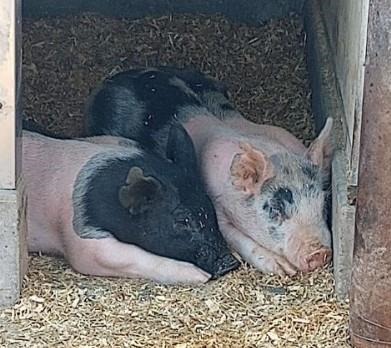Methane mitigation has been identified as essential for addressing climate change. Intensive research in the past decade has resulted in a better understanding of factors driving enteric methane emissions in dairy cattle. In a recent article in the Journal of Dairy Science, published by FASS Inc. and Elsevier, researchers from The Pennsylvania State University (University Park, PA, USA) and the International Livestock Research Institute (Nairobi, Kenya) shared their findings from a meta-analysis of studies on possible mitigation solutions. The authors concluded that some methane inhibitors and dietary changes could decrease emissions with no negative effect on milk production.

Livestock is responsible for 94% of methane emissions within agriculture in the United States. “Governments and the public are interested in finding solutions to climate change, and it is believed that mitigation of agricultural greenhouse gas emissions is part of the solution,” said lead author Alexander N. Hristov, PhD, The Pennsylvania State University. The authors estimated that implementation of available mitigation measures including reducing methane emissions in dairy cattle could slow global warming by about 30% in the next decade.
The authors, however, found there are trade-offs to the mitigation efforts that must be considered. For example, feeding livestock a diet higher in oil may reduce emissions but may negatively affect feed intake, rumen function, and animal performance, specifically milk components in dairy cows.
The authors’ analysis found that dairy cows fed the methane inhibitor 3-nitrooxypropanol (3-NOP) showed approximately a 30% decrease in daily methane emissions or emissions yield and intensity, with no effect on dry matter intake, milk production, or body weight, and an increase in milk fat percentage and yield.
Increasing digestible forage intake is another recommended strategy that has the potential for decreasing the intensity of enteric methane emissions. Other options include replacing grass silage with corn silage in the diet, although those results may be less consistent. In addition, the red macroalga Asparagopsis taxiformis has a strong mitigation effect, but studies are needed to determine its feasibility, long-term efficacy, and effects on animal production and health.
Click here to see more...